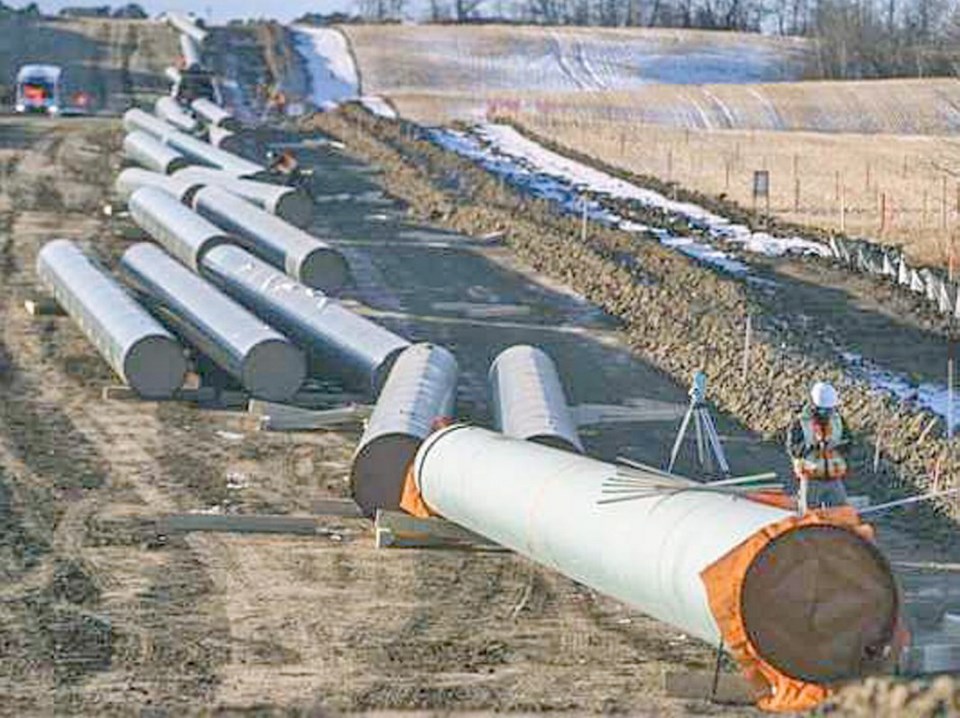Most people just want to ensure that we and our families are safe and healthy during this crisis, and to do all we can to halt or slow the rapid spread of COVID-19.
We’ve seen the best in human nature over the past while. We care about each other. As difficult as the measures we must follow are for so many people, especially those on the front lines and those with few resources, humanity has been given an opportunity to slow down and better understand how we came to face several major crises at once.
Not everyone is easing off on the gas pedal, though. Under cover of the pandemic, the fossil-fuel industry and its supporters are doing everything they can to ensure the world continues to dig up, transport and burn bitumen, oil, gas and coal at an accelerating rate — to the detriment of air, water, land, biodiversity and climate.
In late March, Environmental Defence obtained a memo from the Canadian Association of Petroleum Producers to federal Natural Resources Minister Seamus O’Regan, asking government for a massive rollback in regulatory oversight, a full stop in the development of any new climate policy, and for the industry to be exempted from the requirement to report on lobbying activity.
It also asked government to cancel plans to implement the United Nations Declaration on the Rights of Indigenous People and to delay methane emission regulations, among other requests.
Fortunately, the federal government has so far resisted these demands. Instead, it has committed billions to cleaning up orphan oil and gas wells and reducing methane emissions — thanks in part to pressure from environmental organizations and the public.
Ideally, industry should be on the hook for these cleanups and improvements, but if we are to subsidize them, this will at least create jobs and keep workers employed while restoring habitat and ecosystems.
The governments of Alberta and Ontario, however, are putting industry first by overturning some environmental regulations and, in Alberta’s case, putting billions into pipeline development.
Supporting workers in hard-hit occupations such as oil and gas is necessary, but spending billions to prop up polluting industries that are no longer profitable and aren’t likely to be any time soon is wasteful and counterproductive.
Around the world, including in the U.S., authoritarian-leaning governments are overturning environmental laws and protections, rescinding basic rights and — as we saw during the 2008 recession — bailing out profitable companies that haven’t always demonstrated responsibility with the aid they receive.
Some no doubt realize people are distracted and hope they won’t notice or will be too occupied to raise a fuss. Others have perhaps devoted so much to their financial interests that they are blind to the need for change.
sa���ʴ�ý has already spent $4.5 billion on a pipeline project that industry did not consider economically viable. And Alberta is sinking billions into bolstering an industry whose product has been selling for less than nothing.
Imagine what good those billions could do if put toward correcting course, in ways that would reduce the risks of everything from pandemics to pollution and climate disruption. We could create good jobs, conserve energy, push sa���ʴ�ý to the forefront of the clean tech revolution, enjoy cleaner air, water and land, and develop a more stable economy without the boom and bust of resource-based systems.
Governments have promised to phase out fossil fuel subsidies for years. If they are to be subsidized at all now, it should only be to help clean up the many abandoned and orphaned wells that continue to mar landscapes and pollute air and water — as sa���ʴ�ý’s government has promised — and facilitate a rapid, just transition to cleaner energy, with concrete plans on how to meet our global commitments to prevent the climate crisis from worsening.
We know that protecting nature and respecting our interdependence with it are key to reducing risks of everything from disease spread to pollution to climate catastrophe. The barriers aren’t from a shortage of solutions but only from lack of political will.
In these times, our focus must remain on safety and health, for ourselves, our families and our communities. But in the long run, that will also depend on the safety and health of the natural systems on which we all rely.
David Suzuki is a scientist, broadcaster, author and co-founder of the David Suzuki Foundation. Written with contributions from David Suzuki Foundation Senior Editor and Writer Ian Hanington.



